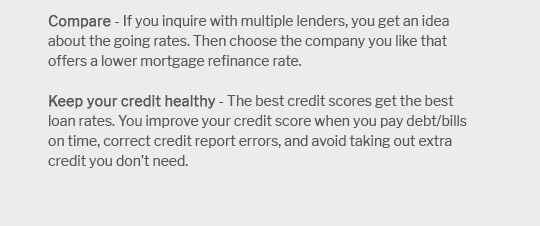 |
|||
 |
 |
 |
 |
|
|---|---|---|
 |
 |
|
 |
 |
|
 |
 |
 |
 |
Exploring the Best Mortgage Rates in WisconsinWhen it comes to securing a mortgage in the picturesque state of Wisconsin, the journey can often seem like a complex tapestry woven with interest rates, lender terms, and local real estate nuances. However, with a little guidance, you can navigate these waters effectively and land a deal that suits your financial landscape. Wisconsin, known for its charming landscapes and vibrant cities, offers a diverse range of mortgage options for both first-time homebuyers and seasoned property investors. To truly understand what constitutes the 'best' mortgage rates, it's important to delve into several key factors that influence these rates. Understanding the Local Market: The first step in your mortgage journey is to grasp the dynamics of the local real estate market. Wisconsin's housing market can vary significantly from bustling areas like Milwaukee and Madison to more serene regions such as Door County. Each region presents its own set of challenges and opportunities, which directly impact mortgage rates. For instance, urban areas might have more competitive rates due to the higher volume of transactions, whereas rural regions may offer incentives to attract buyers. Economic Indicators and Their Influence: Mortgage rates in Wisconsin, much like the rest of the country, are also heavily influenced by broader economic indicators. Factors such as the Federal Reserve's interest rate policies, inflation trends, and employment rates play a crucial role. When the economy is thriving, rates might climb as demand increases, while economic downturns often lead to rate cuts to stimulate borrowing and spending. Your Credit Score: A Personal Benchmark: One cannot discuss mortgage rates without highlighting the importance of your credit score. A higher credit score often translates to more favorable rates, as it signals to lenders that you are a lower risk borrower. It's wise to review your credit report, address any discrepancies, and perhaps even seek financial advice to optimize your score before embarking on this journey.
In conclusion, finding the best mortgage rates in Wisconsin is a multifaceted process that requires consideration of both personal and external factors. By understanding the local market, keeping an eye on economic indicators, maintaining a healthy credit score, and weighing your options between fixed and adjustable rates, you can position yourself to secure a mortgage that not only meets your needs but also supports your long-term financial well-being. As you embark on this journey, remember that the best rate is not solely about numbers but about finding the right fit for your unique circumstances. https://www.mortgagenewsdaily.com/mortgage-rates/wisconsin
Top 5 Originators in Wisconsin. 3.0 %. US Bank ; Originations by Property Type. 89.0 %. Single Family ; Originations by Loan Purpose. 49.3 %. Refinance. https://money.usnews.com/loans/rates/mortgages/mortgage-rates-wisconsin
As of March 25, 2025, the average APR for Wisconsin is 6.877% for 30-year fixed mortgages, 5.983% for 15-year fixed ... https://www.accunet.com/check-rates/
20 Year Fixed, 6.375%, 6.605% ; 15 Year Fixed, 5.750%, 6.073% ; 10 Year Fixed, 5.875%, 6.334% ; VA 30 Yr Fixed, 5.875%, 6.294%.
|
|---|